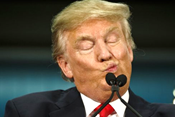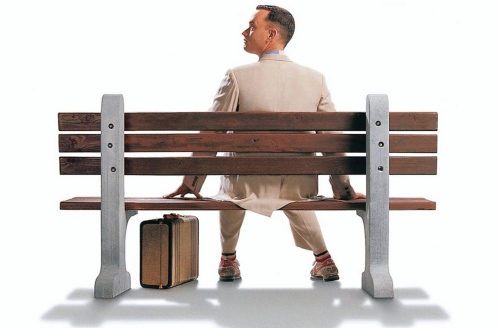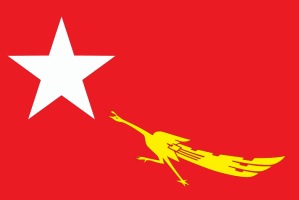It’s Just Fake News
I enjoy teaching. History is one of the many humanities courses that I have taught. I have taught it onsite and online. I just finished posting grades for a world religion survey class, which Ti Ti, my granddaughter, took online from Inle Lake, Myanmar.

I’m on winter break now, and I had an idea. Ti Ti took that class online with limited electricity and Internet access. The military coup often limits electricity to two to four hours daily. That was the genesis of my idea.
I’m willing to teach Donald the Dumb online. I’m sure electricity isn’t limited at his Mar-a-Lago estate. So, I spoke with one of his representatives last month about my offer. The guy said he would check with Trump to see whether he would be interested in taking an online class from me. I haven’t heard yet whether Trump is interested. Therefore, I decided to give a brief example of one of my history lessons. Trump claims that he was a stable genius at Wharton. He should be able to get a good grade in a three-hour history class.

If Trump does well in the class, he might give me an honorary degree or even resurrect his Trump University. He then could give me a visiting professor position at TU.

Since Trump is a great military-type person, I pondered many historical topics of famous wars. Initially, I thought about Hannibal crossing the Alps or the Battle of the Alamo. However, after further pondering, I picked a topic. It would be the run-up to the Japanese surrender to Americans on the USS Missouri.
I would explain to Trump that Present Truman warned the Japanese to surrender. To convince the Japanese, he had our air force carpet bomb the significant cities...with leaflets. This is one of the sixty-three million leaflets that bombed Japan early in August 1945.

Ti Ti can translate this for you.
Essentially, the Americans were warning the Japanese military and civilians to stop fighting or else the American Air Force would drop bombs, which would end the war quickly.
On August 6 and 9, Hiroshima and Nagasaki experienced an atomic bomb exploding above the city, killing over 100,000 people immediately. Over another 100,000 experience injuries, many of whom would die from their injuries in weeks and months after the bombing of those two cities.
The haunting question is whether bombings quickened the Japanese surrender because the Russians were preparing to attack Japan. Eight decades later, historians still debate what forced the Japanese to surrender.
However, in the late evening of August 14, the last flight of an American bomber flew toward Tokyo, then turned, and continued toward an oil refinery many miles from the capital. When the Japanese saw the planes heading toward Tokyo, they assumed the Americans would drop another atomic bomb. Therefore, they blacked out the city to avoid a direct hit.
The Japanese assumption was a godsend. At the time of the blacking out of Tokyo, a group of lower rank officers attempted a coup. Hirohito was going to announce the surrender of Japan. He had recorded his speech and made a copy of it. The next day, the Tokyo radio station would use the recording left there. A backup copy was taken back to the Imperial Palace.

Hirohito’s willingness to surrender, provided he remained the emperor, caused much discussion within the military. From a Western standpoint, it discussed the divine right of kings and royal judgment. Many believed that Hirohito’s decisions were divinely inspired due to his lineage.
Others thought that they knew better than the divinely inspired emperor. The military leaders attempted to stop the transfer of power from Hirohito to General MacArthur. Midst the blackout, they tried to find the recording in the palace and surrounding buildings without any lights. They needed to destroy the recording, which would have stopped the war.
Army Minister Anami believed surrender was the correct step because it was Hirohito’s command. If someone in his command tried to disobey the emperor, Anami stated that it would be done “only over my dead body.” Anami signed the surrender agreement on August 14.

Nonetheless, Major Kenji Hatanaka organized and led the Midnight Coup. Had it not been for the belief that the Americans might drop the third atomic bomb, the electricity wouldn’t have been turned off in Tokyo. Without light, the Midnight Coup could not find the copy of Hirohito’s recording.
The Midnight Coup story was adapted for television decades later. This photo was from the program. After the coup failed, one of the coup leaders, in the foreground, committed seppuku. Seppuku is an extremely painful disembowelment and goes back historically to the time of the samurai from the 13th to 19th century. However, Hatanaka didn’t want to suffer. He shot himself in the head. He is in the background waiting patiently for one of the coup leaders to die.

Interestingly, there is a rumor that Hatanaka said just before he shot himself, “We won, and the notion that the others won is fake news. Besides, it wasn’t even a war. It was just a peaceful demonstration for MJGA.” MJGA is an acronym for Make Japan Great Again. Having vented his feelings, he blew his brains out.
So, what can we learn from the failed Midnight Coup? George Santayana said, “Those who cannot remember the past are condemned to repeat it.” That is an excellent reason for learning history.
This is a written copy of Hirohito’s speech.

This is an audio copy.
Follow @mountain_and_me














